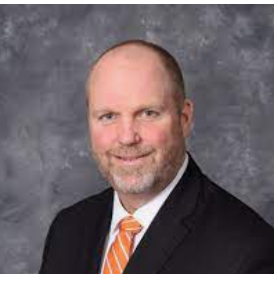Dr. Robert Hunt came to District 220 after extended academic and administrative careers in Ohio. He was not anticipating a move when he heard of the Barrington opportunity from the prior Superintendents Harris and Leonard. He comes to the village as a parent of children in the school system, and his wife is a teacher in St. Charles. He looks forward to having the 220 District be a primary resource in bringing the wider community back together after the COVID experience.
His update on the $147M referendum outlined the various safety and security issues that will be addressed across the system, as well as the new, flexible learning spaces that will provide options for engaging students and optimizing space in support of education. Every school building in the District will be impacted in some way. Teachers will be prepped in ways to use the new facilities.
AM/ PM use of external sports fields will be addressed in addition to interior updates for classrooms, cafeteria, fitness center and gyms at the high school. The high school will also have a new entrance and stop light.
A Vision 220 had been created to strategically drive change in the system. Dr. Hunt now feels a Framework 220 is needed to operationalize the strategy. April 29-20 he is gathering 100 Barrington community members to discuss the future and create a “learning profile” that will guide activities and changes at District 220 for 3-5 years.
Dr. Hunt shared several key learnings from COVID:
- learning can take place anywhere;
- for District 220, there was not a marked decrease in academics, but a definite impact in social engagement;
- with the leveraging of Zoom, there was a dramatic increase in parent participation;
- the education system must be flexible, adaptable;
- learning needs to be personalized especially addressing the social/ emotional aspects;
- clarity in communication of expectations is key for students and parents;
- technology should be leveraged to accelerate learning;
- there is a definite connection between the home and school environments;
- problem solving and risk taking are critical educational skills;
- relationships and personal connections are vital.
Dr. Hunt met early on with over 300 of the District’s constituents to assess their perspectives on education in the area. It was evident the pride they had in the education system and the interest in continuing to be heard as a voice in the development of programs.
It was Dr. Hunt’s sense the future Successful Learner would need to be:
- collaborative
- empathetic
- creative
- an advocate for self and others
- critical thinker with problem solving skills
- solid communicator
